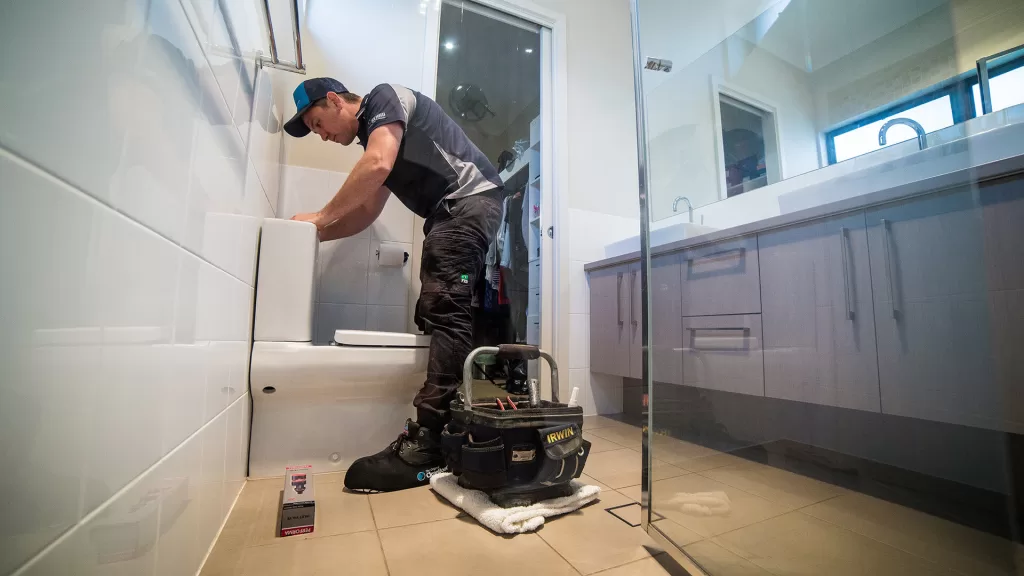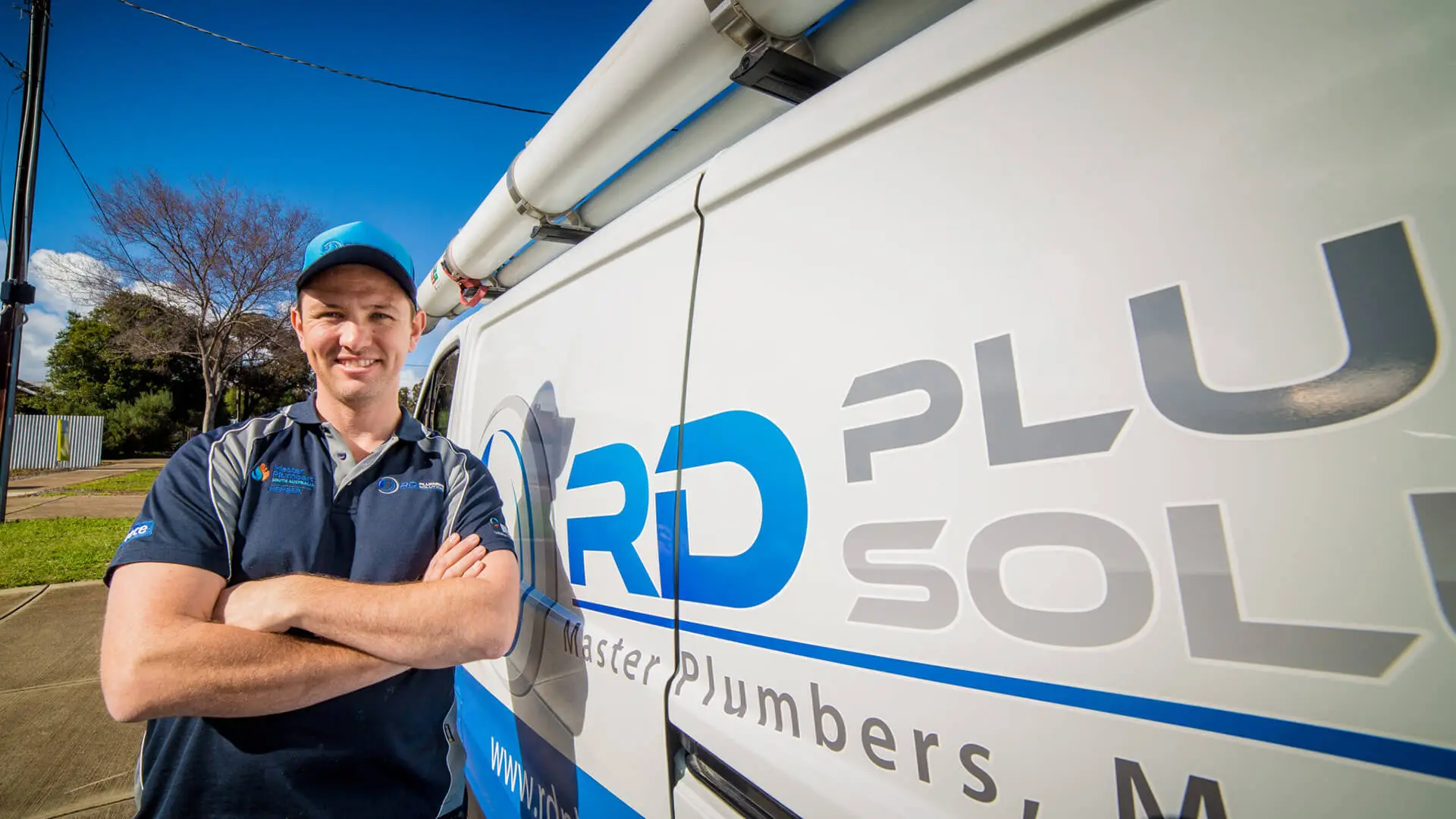When planning a renovation, most homeowners think about things like layouts, finishes, and costs. What often gets overlooked though is the hidden work behind the walls – especially plumbing. However, poor plumbing work is one of the most common issues flagged during renovation building inspections, and it’s also one of the key reasons councils delay approvals and final signoffs.
Building inspectors regularly see how plumbing problems not only cause frustration for homeowners but also add weeks – or even months –to renovation approval delays. For plumbers, builders, and homeowners alike, understanding the risks of poor plumbing and the role of inspections can save a lot of time, money, and stress in the long run.
Why Plumbing Quality Matters in Renovations
Plumbing is one of those systems that homeowners rarely think about – until something goes wrong. Unlike tiles, paint, or fixtures that can be swapped out with relative ease, plumbing is hidden behind walls and beneath floors, which makes mistakes far more disruptive and expensive to fix once the project is complete. That’s why proper plumbing is central to the success of any renovation.
From a compliance perspective, councils and certifiers must ensure all plumbing work meets the relevant Australian Standards before approvals can be granted. Any signs of poor plumbing work – whether that’s leaking pipes, insufficient drainage, or improper waterproofing – can result in renovation approval delays until the defects are corrected. For homeowners, this doesn’t just mean frustration; it can mean extended mortgage repayments, delayed rental income, or living without access to critical spaces like bathrooms and kitchens.
Beyond Building Compliance
Beyond compliance, plumbing quality has a direct impact on the long-term performance of the property. Leaks or poorly sealed joints may seem minor at first but can lead to mould growth, structural damage, and costly repairs down the line. In wet areas, poor waterproofing is one of the most common reasons for insurance claims, and many insurers refuse coverage if the plumbing work wasn’t carried out to code.
Quality plumbing also contributes to efficiency and sustainability. Correctly installed systems reduce water wastage, ensure proper pressure, and minimise the likelihood of future maintenance issues—all of which are key considerations for landlords, investors, and environmentally conscious homeowners.
Plumbing Costs
Cutting corners or going with the cheapest quote can seem tempting sometimes, especially when it saves you money upfront, but it often leads to delays, disputes, and long-term costs that far outweigh the initial savings. Because plumbing quality is one of the biggest cornerstones of safe, functional, and compliant renovations, using a licensed plumber and getting an independent building inspection for plumbing defects is the best way to protect yourself if you’re planning major renovations.

Common Plumbing Issues That Trigger Council Delays
Even the best-planned renovation can grind to a halt if the plumbing doesn’t meet council or certifier standards. From leaky joints to non-compliant drainage, poor plumbing work and plumbing defects are among the most common reasons for renovation approval delays. While some issues might seem minor on the surface, small plumbing failures can quickly escalate into major structural or health problems, which is why council inspectors take them so seriously.
Most common types of poor plumbing work
Here are some of the most common types of poor plumbing work that building inspectors see in building inspections for plumbing defects.
- Incorrect Pipe Installation: Misaligned pipes, inadequate sealing, or using the wrong pipe materials can all lead to leaks, reduced water pressure, or even structural damage. Inspectors and councils won’t sign off on plumbing that risks future failures.
- Non-Compliant Drainage: One of the most common defects is improper drainage. Incorrect gradients, blocked vents, or undersized pipes can cause flooding or health hazards. These are instant red flags during a building inspection for plumbing defects.
- Poor Waterproofing in Wet Areas: Bathrooms and laundries are hotspots for compliance issues. Faulty waterproofing and plumbing connections are among the top causes of renovation approval delays. Councils require evidence that waterproofing and plumbing meet compliance standards before granting occupation certificates.
- Illegal or Unlicensed Work: DIY or unlicensed plumbing work is a surefire way to stall approvals. Councils may demand rectification by a licensed plumber before they’ll proceed, which will cost you both time and money.

The Costs of Poor Plumbing
Before any renovation can be legally completed, local councils require a final inspection to confirm that all work complies with building regulations. If inspectors discover defects – whether it’s non-compliant drainage or poor plumbing work – they’re legally obligated to withhold approval until those issues are resolved. In many cases, this means removing newly finished tiling, cabinetry, or flooring to fix the underlying plumbing, undoing thousands of dollars’ worth of completed work.
Some of the common costs associated with bad plumbing include the cost to remove tiles, cabinetry, or flooring to access faulty plumbing; council reinspection fees for additional inspections required after defects are fixed; and extended mortgage repayments or rental losses due to renovation approval delays.
How to Avoid Plumbing Related Delays
There are several things you can do to avoid costly renovation approval delays. The first and most important step is to engage only licensed plumbers. Councils and certifiers are meticulous about checking credentials, and any unlicensed or uncertified work can bring your renovation to a standstill until it’s rectified. Choosing a licensed plumber will also ensure that your plumbing complies with current Australian Standards. They will also be able to issue you with all the proper documentation such as compliance certificates, waterproofing photos, and plumbing pressure test reports, which are commonly requested by council as part of the sign-off and approval process. Having this documentation ready not only streamlines your approval but also protects you if issues arise later.
Mid-construction building inspection
Scheduling a mid-construction building inspection is also highly recommended. Too often, homeowners wait until the very end of a renovation to think about inspections – but by then, tiles, cabinetry, and flooring may already conceal defects. Scheduling a mid-construction inspection allows potential problems to be picked up while they’re still accessible and easy to fix. Building inspections for plumbing defects commonly identify problems like incorrect pipe placement, insufficient drainage slopes, or faulty waterproofing – issues that, if left unchecked, would trigger rejections from council. Picking up on these kinds of issues early can save you thousands of dollars in rework and weeks of lost time down the track.

Poor plumbing work is one of the leading causes of renovation approval delays. From leaking pipes to non-compliant drainage, even small errors can have big consequences when councils refuse to sign off. The good news is that with careful planning, licensed trades, and a building inspection for plumbing defects, most of these issues are entirely preventable.
Final thoughts on poor plumbing
Whether you’re renovating a bathroom, extending a home, or upgrading an investment property, the best way to avoid council setbacks is to combine expert plumbing services with an independent building inspection. By choosing a plumbing team that understands compliance and partnering with an experienced building inspector, you can maximise the chance that your renovation work will pass approvals the first time.
Don’t let poor plumbing work delay your dream renovation. Speak with our expert plumbing team today and ensure your renovation meets council standards the first time, with no delays and no costly rework required. Together, we’ll help you avoid renovation approval delays, reduce costs, and keep your renovation on track.

Russell is a qualified Master Plumber, having been in the industry since 2004. He started his own company in 2013, and today, is a reputable company operating in metropolitan Adelaide. We are truly your local plumber!
We specialise in all aspects of plumbing services including 24 hour emergency response, blocked drains, drain camera inspections, pipe relining, gas fitting, hot water service & replacement, rain water tanks and all other home maintenance plumbing services. We aim to exceed your expectations in everyway and deliver the level of service that has made our business what it is today.





